There are many tips on potty training out there, including many toileting methods, training strategies, and potty training charts. But, what if you could have the occupational therapy potty training strategy? Toileting is an ADL and potty training is part of that. What if you could get the low down on potty training from an occupational therapy or physical therapy professional, that is guided by development, focuses on underlying skills needed to use the bathroom, and addresses the whole child perspective? What if you could ask every developmental question under the sun and get tips for toileting straight from the pediatric OT and PT?
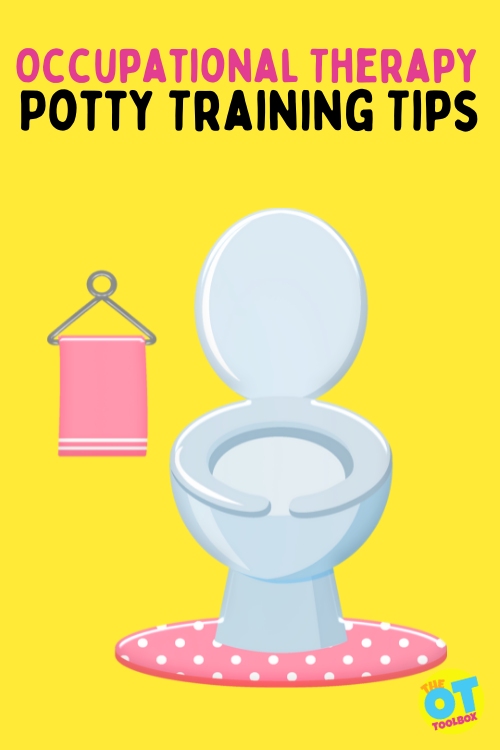
This blog post covers just that! I’ve joined forces with some of the best occupational therapy and physical therapy bloggers to to bring you the best potty training tips.
Occupational therapy Potty Training
When occupational therapists work with children, they focus on the whole perspective. We look at development, environment, and every aspect that contributes to the entire process of toileting:
- Awareness (sensory, cognition) to know when to go to the bathroom
- Clothing management (fine motor skills, gross motor skills, visual motor skills, bilateral coordination, crossing midline, coordination skills, executive functioning skills, cognition, sequencing)
- Motor skills to sit, balance, stand, grasp, wipe, clean
- Bowel movements and urination (sensory processing including interoception aspect, contributing factors such as sleep, nutrition, sensory integration) Related, read our resource on not sleeping through the night.
- Pericare
- Hygiene– washing and drying hands (fine motor skills, gross motor skills, visual motor skills, sensory processing, executive functioning skills, attention and behavior)
- Parent education
- Physical adaptations and modifications– adaptive equipment, specialty toilet seats, environmental changes, visual schedule use, etc.
- Play-based activities to support development of underlying areas that impact each of the above areas
As you can see, occupational therapy professionals focus on the overall development and whole view of the child, the environment, and many other perspectives. This is a wider focus than your typical 3 day potty training method, or a sticker chart!
Potty Training Tips
Toilet training tips can look like a checklist of tasks to complete. But, when you consider all of the aspects of development that play into the process of toileting, there is much more than just a list of potty training tips to accomplish.
Potty training is an important rite of passage for children. For most individuals, they use the toilet each day without a single thought. And it is possible for the toddler or preschooler to get to that stage. Children of all ages, including older kids can struggle with the process, which is all very typical.
1) ROUTINES- The most valuable potty training tip for parents, no matter the age of the child and the physical or cognitive ability is consistent routine.
Routine, whether it is practiced with a visual schedule, a potty training sticker chart, toileting adaptations, special nutrition, timers, physical exercises like yoga…all should be consistent and replicated on an ongoing basis.
There are so many aspects of development that contribute to underlying skills and the process of toileting. Whether these factors are addressed in occupational therapy sessions or in a home program, that consistent practice and routine trial is needed to support development.
2) PATIENCE- A second and worthy toileting tip is to focus on the patience.
Toileting is a complex process. Add in environmental considerations such as public toilets, loud hand dryers, noisy flushing toilets, and other sensory-based distractions.
- Consider rushed schedules to get out the door in the morning.
- Consider typical behaviors and attention spans of toddlers and preschoolers.
- Consider day to day stressors.
- Consider the distraction of screens and social media (“My infant is using the toilet all by themselves!”…yeah right!)
This is just the tip of the iceberg when it comes to all the factors that play into potty training. The fact is that kids are kids! They are just learning this complex skill, and toileting is a huge developmental process! The key to this whole process is patience and persistence.
3. BIGGER PICTURE- A third potty training tip occupational therapy professionals focus on is looking at the whole child.
This is more on what we covered above. When you take a step back and think about ALL of the developmental areas that play into toileting, self-care, hygiene, there are SO MANY areas at play here!
Let’s look at all of the areas that have a factor in the toileting process:
- Balance
- Coordination
- Dexterity
- Motor planning
- Sequencing
- Impulse control
- Attention/focus
- Safety awareness
- Body awareness
- Grasping strength and mobility
- Postural control
- Fine motor coordination
- Gross motor coordination
- Visual perceptual skills
- Sensory processing- tactile sensitivities, proprioception, vestibular, interoception, auditory, olfactory (smell)
- Interoception- This is worthy of a second mention- The ability to know when to go, to feel the pressure in the belly area, the sensation of having to pee or poop, the feel of pushing a bowel movement, the sensation of knowing when the process is complete, feeling hunger or thirst, sensing an upset stomach
- Cognition
- Communication and language
- Social and emotional skills
- Family perspective
This list essentially covers all areas of development! You can see that simply potty training can take longer for some individuals, and that is completely ok!
Occupational Therapy Toileting Strategies
The occupational therapy professional working with families on the functional task of toileting considers all of the areas listed above. They break down the process and use skilled assessment to analyze areas contributing to challenges with toileting.
OT professionals offer strategies and supports to develop contributing areas that impact the challenges that come up with toilet training. They offer suggestions, motivators, fun play activities, schedules, and consultancy that promotes development in the areas that will lead to success.
Occupational therapy practitioners can support families with potty training troubles in so many ways:
- Development of underlying areas through play
- Adaptations and modifications to the environment
- Establishing a routine
- Creating a sensory diet
- Writing appropriate toileting social stories
- Educating parents and guardians on readiness factors
- Supporting carryover of skills across environments
- Medical review and ruling out considerations that should be addressed with a physician
- Focusing on reducing anxiety
- Supporting with schedules, motivators, and play-based games and activities
- Creating visual cue cards or tools to support communication skills
- Address mobility and motor skill issues
- Supports to address dressing skills
- Backward chaining or forward chaining methods for potty training process
- Education on various potty training methods that work best for the individual
- Data methods
- Functional skill assessment
- Address sensory sensitivities
- Address clothing considerations
- Educate on sensory and perceptual concepts such as wet/dry, clean/dirty, front/back
- Body awareness considerations
- Address physical considerations
- Address concurrent considerations such as diagnoses and their impact on toileting: physical or cognitive considerations, sensory processing differences, mobility, balance, muscle tone, etc.
The whole process of potty training is complex and aspects can be a challenging and difficult time for parents. There can even be frustration at times.
All children need to learn and finding out the best potty training tips and ways to help with teaching kids to potty train that works for their individual needs.
To support kids in these areas, I’ve joined a team of pediatric occupational therapy professionals and physical therapists in creating the ultimate resource based on development and the whole child.
The Toilet Training Book: A Developmental Look at Potty Training for Kids of all Abilities was created as a comprehensive resource covering every aspect of toilet training including:
- Potty training readiness (based on development)
- The developmental progression of toileting, perineal hygiene, self-care, and handwashing
- Toileting for special populations including Autistic individuals, those with diagnoses such as Down Syndrome, Cerebral Palsy, Traumatic Brain Injuries, Spina Bifida, Spinal Cord Injuries, and other physical disabilities, etc.
- Strategies and supports for those with fine motor, gross motor, visual motor, behavioral, trauma, sensory, or cognitive considerations
- Tips and suggestions when there is trouble with toilet training
- Equipment suggestions for toileting
The book also includes toilet training matrix for readiness and functioning, readiness skill activities, interoception information, social stories, visual schedules, sticker charts, and other tools.
ackling potty training is a challenge for all kids! What if you had the inside scoop on development in your back pocket?
What if you had the know-how of occupational therapists and physical therapists with DECADES of experience to guide you?
The Toilet Training Book offers a developmental look at potty training for kids of ALL needs.
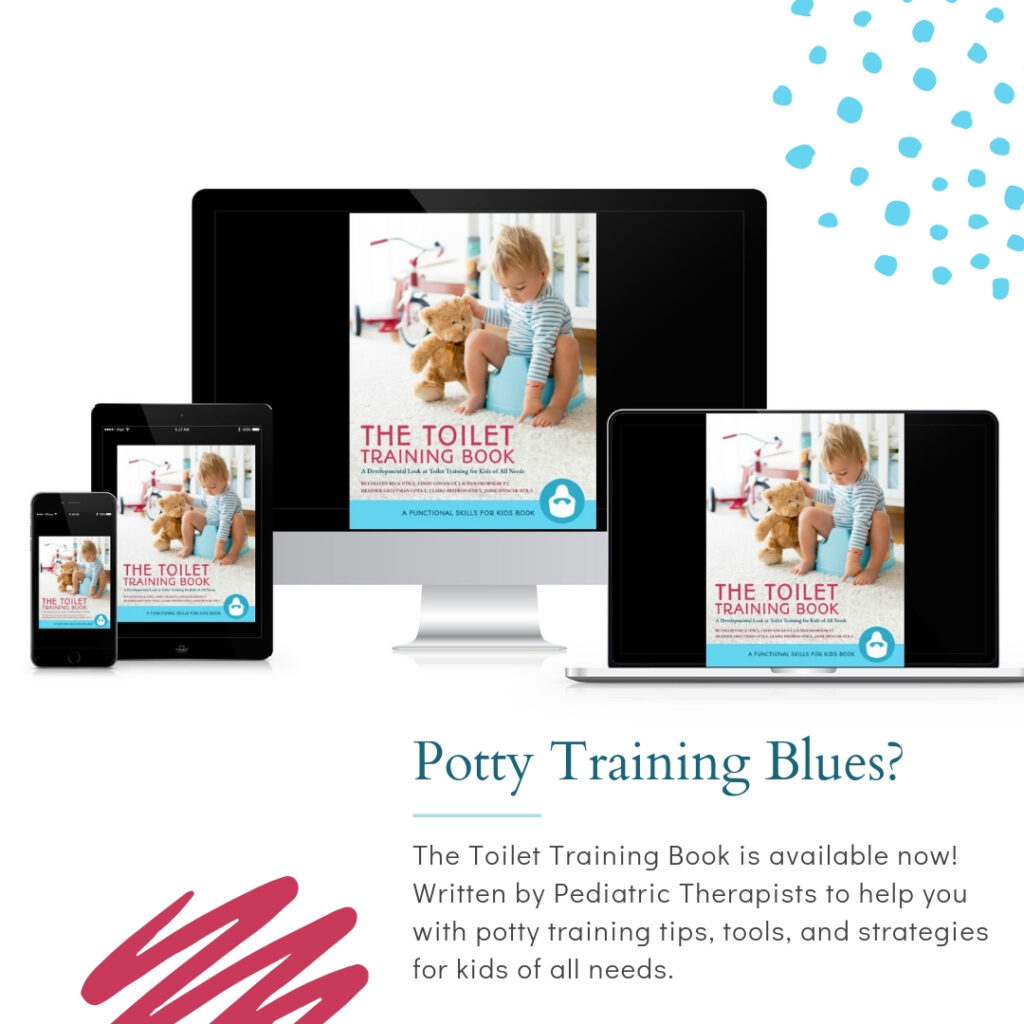
More Potty Training Tips from OT and PT
The authors of the Toilet Training Book have decades of experience working with individuals of all skills and abilities. Check out some of the potty training tips they have, coming from the OT/PT perspective:
Fine Motor and Toileting- Looking for fine motor considerations when it comes to toileting and potty training? There are many fine motor skill areas that impact potty training:
- tearing toilet paper
- wiping with enough grip and strength
- managing clothing fasteners such as buttons, zippers, snaps, etc.
- managing the faucet and soap
- Motor skills to grasp and use towels
- and even using the sticker chart!
- Opening locks on public restroom doors
- Flushing the toilet
We as occupational therapists might focus on the fine motor aspect all of these areas that impact toileting. Still other contributions grasp, coordination, pinch strength, crossing midline, bilateral coordination, eye-hand coordination.
For tips and suggestions to support development of all of theses areas, check out Potty Training, Toileting and Fine Motor Considerations by The Inspired Treehouse.
Gross Motor and Toileting- Toileting has a considerable gross motor skill component. Consider that areas that impact potty training skills:
- Mobility to the bathroom
- Managing a small space
- Getting on and off the toilet
- For boys, standing and maintaining balance at the urinal or toilet
- Managing clothing while sitting, standing, squatting
- Balance
- Coordination
- Postural control
- Weight shift
- Trunk control
Pediatric OTs and PTs can use task analysis to break down these areas into smaller steps that can be addressed through play, modifications, and activities. Check out Gross Motor Skills and Toilet Training by Your Therapy Source for more information.
Potty Training and Sensory Processing- The potty training process has a huge sensory component. Think about these areas:
- Tactile components to manage toilet paper, water, soap, etc.
- Auditory consideration- sound of flushing, echo in the bathroom, sounds of others in a public restroom, hand dryers
- Olfactory consideration- The smell of bowel movements and urination can be an issue for some, the scent of soap
- Proprioception- understanding where the body is in space in order to squat, stand, and move with enough force
- Vestibular- movement into different planes including an inverted head (kids will do this), standing, sitting
- Interoception- knowing when to go, when bowel movements are completed, the feeling of a full bladder and empty bladder, huger, thirst, and even sweat
- Sensory defensiveness, sensory seeking, sensory hypersensitivities, poor registration of sensory input all contribute to toileting
- Body awareness
- Fecal smearing
For more information on the sensory aspect of potty training, check out Toileting and Sensory Processing by Miss Jaime OT.
Adaptations and Modifications for Potty Training- Modifications to potty training can include many things:
- adaptive equipment
- adjustments for fine motor or gross motor
- seating modifications
- adaptations for fear
- social stories
- visual schedules
- wiping modifications
- sensory modifications
- behavior modifications
For more information on the modifications, check out Modifications For Potty Training from Therapy Fun Zone
Developmental and Environmental Readiness for Potty Training- Readiness is more than development in some cases. Therapy can address these areas that impact successful toileting:
- Readiness activities such as books, stories, and social stories
- Following the lead of the child
- Practicing hand washing
- Practicing clothing management- removing clothing, dressing skills, buttons, zippers, snaps, buckles, etc.
- Visual cue cards
For more information on readiness, check out Preparing Your Child & Environment for Potty Training from Growing Hands-On Kids.
Play-based potty training- Occupational therapy professionals use play as a tool to support development, because play is the primary occupation of children. Through play we can develop many skills. Play can be used to address activities in toileting such as:
- Teaching wet and dry through sensory play
- Teaching dirty and clean through sensory play
- Teaching front/back and directional concepts through obstacle courses and doll play or other toys
- Addressing body awareness through sensory play, obstacle courses, and toys
- Addressing interoception, proprioception, body awareness, and sensory integration through yoga and heavy work activities
- Addressing hand strength, gross motor skills, crossing midline, and physical considerations through pretend play, gross motor games, etc.
For more information on using play to support potty training, check out Teaching Concepts for Potty Training Through Play from Your Kids OT.
All of these areas are covered in detail, along with much, much more information in The Toilet Training Book, a Developmental Look at Potty Training for Kids of All Abilities.
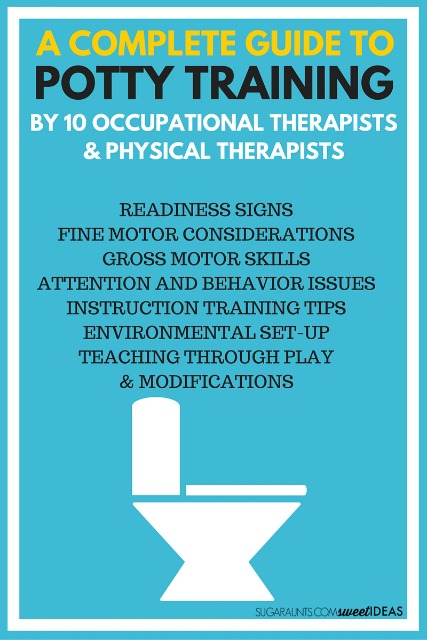
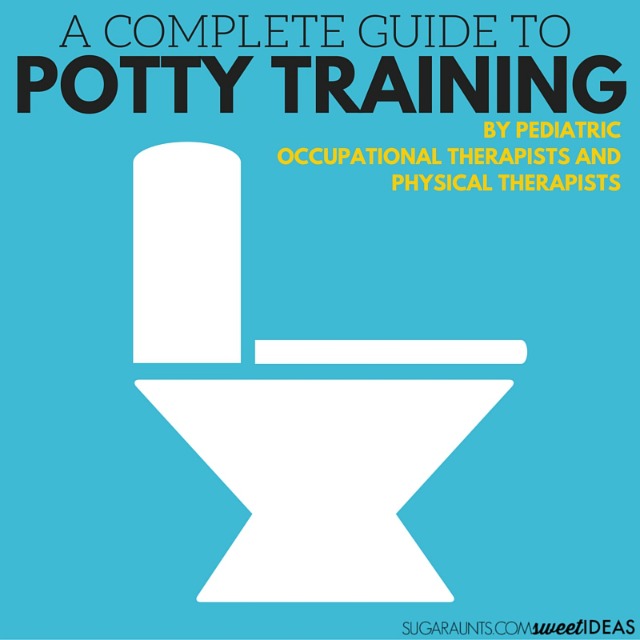
Looking for more functional ideas for kids?
- Development of Play
- Precursor Skills to Independence with pencils, spoons, brushes, etc
- Developmental Milestones in Kids Getting Dressed

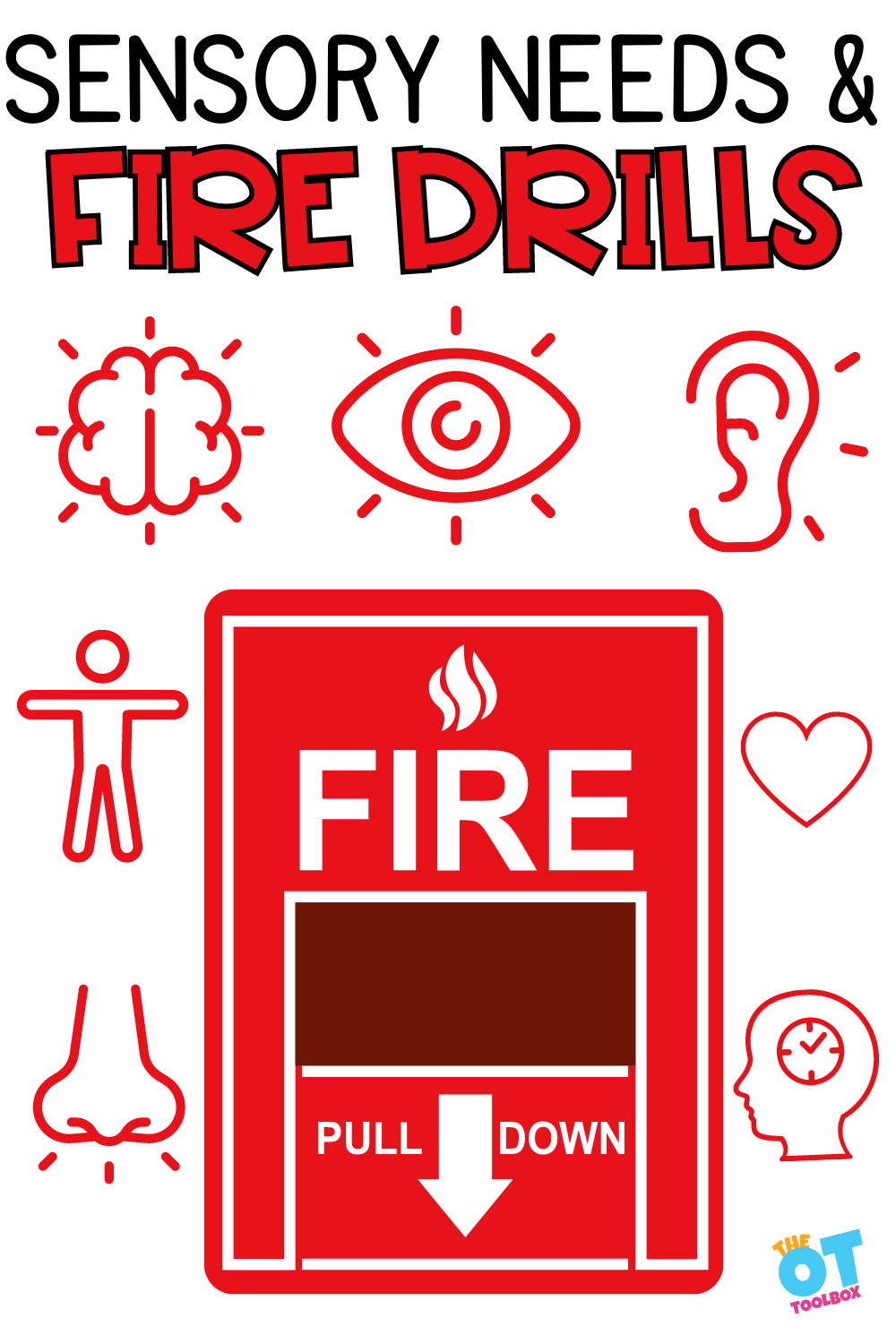
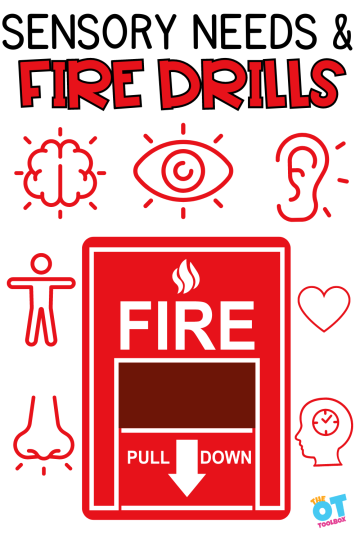
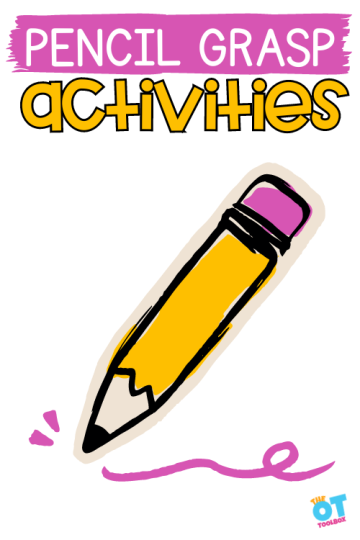
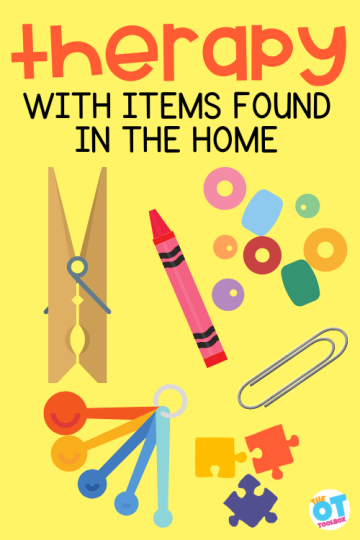
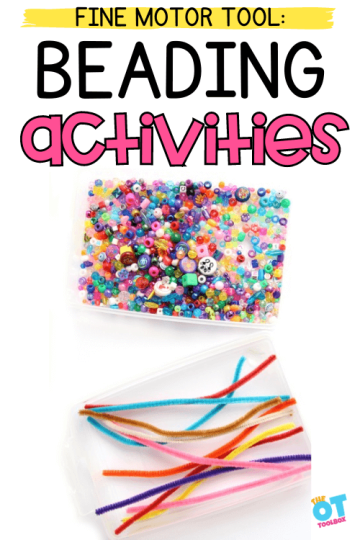
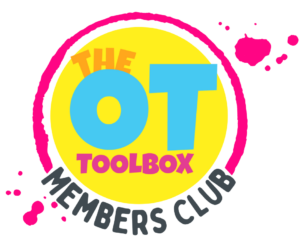
2 thoughts on “Tips For Potty Training -Occupational Therapy & Physical Therapy”
Comments are closed.